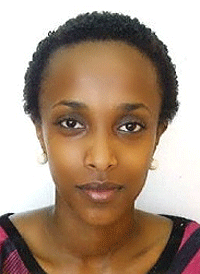This week Kigali is hosting over 1,500 delegates from all over the continent and beyond, who are in the country for the Transform Africa 2013 Summit.


This week Kigali is hosting over 1,500 delegates from all over the continent and beyond, who are in the country for the Transform Africa 2013 Summit. The banners are up, billboards line the street and every so-often, an announcement on the radio revs the city up for possibly the largest event of the year.
For Kigali-zens, the ubiquitous event branding may be reminiscent of the 2007 Connect Africa Summit hosted in Kigali by H.E Paul Kagame and Dr. Hamadoun Toure, the Secretary General of the International Telecommunications Union.
The Connect Africa Summit was held at a time when Africa was beginning to implement ICT infrastructure projects: discussions revolved around building partnerships for network rollout and strategic investment in bridging ICT infra-gaps.
Six years down the road, Africa is sitting on a very different locus. To put things into perspective: today 650 million Africans own mobile phones, compared to 250 million in 2007; in Rwanda under 35% of the population used mobile phones in 2007, compared to over 63% as of September this year.
In fact, it is interesting that at the time only MTN Rwandacell operated in the Rwandan market and the national broadband backbone was yet to see a day under the sun. And yet here we are today – this year the Government of Rwanda entered a Joint Venture with Korea Telecom to unfurl 4G LTE nationwide within three years.
Rwanda and other African countries have made giant strides in ensuring citizens gain access to reliable connectivity at affordable prices. Now that we have the core networks and given that mobile phones have infiltrated our daily lives, what next? If Rwanda’s state of affairs is anything to go by, the "content deficiency” remains the only missing link.
Beyond browsing, messaging (email and chat) and mobile money, I am not aware of much else that is transmitted across the bytes of data traversing our networks beyond voice and SMS.
Don’t get me wrong, I am aware of a number of apps built by Rwandans for Rwandans, but it is fair to say that there is still a glaring gap in mass usage of these applications in our daily lives. For example instead of queuing for buses, a seat-booking system that informs you what number bus you are booked for, and what time it arrives would allow people to use their time more productively; upon getting on the bus, the passenger could then watch live TV streamed directly to the phone or catch up on an online course. You get the gist…
Encompassed by the trichotomous subject – "Connect, Innovate, Transform” – and the visionary theme – "The future delivered. Today” – the Transform Africa Summit aims to address the gap in innovation, development and uptake of mobile services that shall revamp service delivery in Africa, and thus, transform lives.
As part of the agenda, Transform Africa delegates shall deliberate on creating a Smart Africa agenda where by Smart Agriculture services, Smart Healthcare services (to mention a few) harness the African mobile revolution to accelerate economic growth.
In fact, we are left with no choice: in 2050 one quarter of the world’s population will be Africa (over three-quarters of this population will be under 30 years old). Issues concerning food security and quality of education or healthcare are more pertinent than ever: mobile phones present the opportunity to disseminate information, transform classrooms, re-invent farming practices and create jobs.
Surprisingly it is not difficult to envision a Smart Africa, given the radical shift in gear witnessed over the past six years (only). Granted, the picture is not as rosy as it may seem: the prevalence of feature phones even today, illiteracy rates, lack of technical skillset, to mention but a few, present an enormous challenge to achieving this vision.
Nevertheless, watered down or shaken up, the fact remains that Africa will have to leapfrog historical development stages to meet development goals – how we utilize and maximize broadband to achieve thiswill be up for discussion at the Transform Africa Summit.
How do you think ICT should transform the continent? Join the discussion @RDBrwanda (#TransformAfrica2013)
Follow the plenary sessions at www.transformafrica2013.org.
The Summit will feature: Leaders’ Summit, Smart Africa Conference, Youth Innovation Extravaganza, International Exhibition and Continental Awards.


